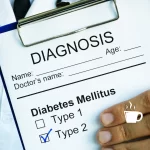Physical Address
304 North Cardinal St.
Dorchester Center, MA 02124

Experiencing an anxiety attack can be an intensely overwhelming and frightening experience. These attacks can strike suddenly, bringing with them a surge of fear and physical symptoms that can disrupt your daily life. Recognizing the early signs and understanding the nature of anxiety attacks are crucial steps towards managing them effectively.
Fortunately, there are practical strategies you can implement to reduce both the frequency and severity of anxiety attacks. This article offers a collection of straightforward, effective tips designed to help you navigate through these challenging moments and move towards a life free from panic. These tips are grounded in proven practices that promote calmness and control.

Anxiety attacks, also known as panic attacks, are characterized by sudden surges of overwhelming fear and discomfort that can strike without warning. These episodes can last from a few minutes to several hours, leaving individuals feeling exhausted and stressed. Understanding the triggers and physiological reactions involved is essential for anyone looking to manage this condition.
One common cause of anxiety attacks is excessive stress. Whether from professional responsibilities, personal relationships, or significant life changes, high stress levels can precipitate an attack. The body’s natural “fight or flight” response is exaggerated in such situations, leading to the intense symptoms of an anxiety attack.
Environmental factors can also trigger anxiety attacks. For some, crowded spaces or specific situations like driving or flying can initiate an episode. Others may find that particular sights, sounds, or smells bring about an attack, especially if these sensory cues are associated with past traumas or negative experiences.
Genetics and personal history play a significant role as well. Individuals with a family history of anxiety disorders are more likely to experience anxiety attacks themselves. Additionally, those who have suffered trauma or significant emotional distress are at a higher risk, as their nervous system may be hypersensitive to perceived threats.
Understanding these causes is the first step towards managing anxiety attacks. Identifying personal triggers can help individuals avoid or prepare for potential episodes, making them less daunting and more manageable. With proper awareness and preparation, those affected can begin to regain control over their lives, reducing the impact of anxiety on their daily activities.

Preparing yourself to effectively handle anxiety attacks is crucial in managing their impact. Recognizing the early signs and understanding how to respond can significantly decrease the severity and duration of an episode. The first step in preparation is identifying your personal anxiety triggers, which can vary widely from person to person.
Once triggers are identified, developing a personal coping strategy is essential. This can involve various techniques such as deep breathing exercises, which help to control the physiological symptoms of anxiety by slowing the heart rate and calming the mind. Similarly, practicing meditation can train your brain to dismiss anxious thoughts and focus on the present moment.
Mindfulness is another powerful tool in the preparation arsenal. This technique involves staying fully aware of what you are experiencing in your present environment without judgment. Regular mindfulness practice can reduce overall stress levels and help prevent the onset of an attack by maintaining a calm, centered mental state.
Creating a “safety plan” can also be helpful. This might include a list of steps to take when you feel an attack coming on, such as retreating to a quiet space, using a meditation app, or calling a trusted friend. Having a plan in place can make anxiety attacks less intimidating and more manageable.
Finally, it’s beneficial to educate close friends or family about your anxiety attacks, so they know how to support you if an attack occurs. This network of support can provide emotional comfort and practical help during or after an episode, reinforcing your coping strategies and contributing to a safer, more supportive environment.

When an anxiety attack strikes, knowing the best immediate actions to take can make a significant difference in managing the intensity and duration of the episode. One effective method is focused breathing, which can help stabilize the body’s fight-or-flight response and bring about a sense of calm.
A specific technique useful during an anxiety attack is deep, diaphragmatic breathing. By inhaling deeply, holding for a few seconds, and then exhaling slowly, you can increase the amount of oxygen in your blood, helping to relax both your mind and body. This method also aids in redirecting your focus from anxiety to your breathing.
Grounding techniques also play a critical role during anxiety attacks. These techniques help you detach from emotional pain and connect to the physical world. One popular grounding method is the 5-4-3-2-1 technique, which involves identifying five things you can see, four things you can touch, three things you can hear, two things you can smell, and one thing you can taste. This practice not only diverts your attention away from anxiety but also aids in bringing your mind back to the present moment.
For some, engaging in a brief physical activity, such as walking or stretching, can help alleviate the symptoms of an anxiety attack. Physical movements can disrupt the escalating anxiety and increase endorphins, improving mood and reducing stress levels.
Lastly, it’s important to reassure yourself verbally during an attack. Gentle self-talk such as, “This will pass,” or, “I am in control,” can serve as powerful tools to diminish the overwhelming feelings anxiety attacks bring. By using these strategies, individuals can gain back control during these intense moments.

Implementing lifestyle changes is a crucial long-term strategy for reducing the frequency and severity of anxiety attacks. By adjusting daily habits, individuals can significantly impact their overall mental health, leading to fewer and less intense episodes.
Regular physical activity is one of the most effective ways to combat anxiety. Exercise not only helps to manage stress but also promotes the release of endorphins, chemicals in the brain that act as natural mood lifters. Activities like yoga, running, or even brisk walking can provide immediate stress relief and improve overall emotional resilience.
A balanced diet also plays a significant role in managing anxiety. Consuming a diet rich in vegetables, fruits, whole grains, and lean proteins can stabilize blood sugar levels and support brain health, which in turn can mitigate symptoms of anxiety. It’s also beneficial to reduce the intake of caffeine and sugar, which can trigger or exacerbate anxiety symptoms.
Adequate sleep is another critical factor in anxiety management. Lack of sleep can exacerbate anxiety, leading to a vicious cycle of sleep disturbances and panic attacks. Establishing a regular sleep schedule and creating a relaxing bedtime routine can help promote better sleep, making you less susceptible to anxiety.
Managing stress through techniques like mindfulness, meditation, or deep breathing exercises can also reduce the likelihood of anxiety attacks. These practices help maintain a calm state of mind and can mitigate the impact of stressors that might otherwise trigger an episode.
By incorporating these lifestyle changes, individuals can create a healthier environment for themselves, both physically and mentally, reducing the impact of anxiety in their lives. These changes not only help in managing existing anxiety but also prevent the development of further symptoms, promoting a healthier, more balanced life.

The role of social support in managing anxiety cannot be overstated. Having a network of understanding friends and family can provide a significant buffer against the pressures that trigger anxiety attacks. When others are aware of a person’s struggles, they can offer practical support and emotional comfort during difficult times.
Discussing anxiety openly with trusted individuals can help reduce the stigma and isolation often associated with this condition. It allows for sharing of personal experiences and strategies that might have benefited others. This exchange of information can provide new coping mechanisms and a sense of belonging, which are crucial for emotional resilience.
Support groups, whether online or in-person, also play a critical role in managing anxiety. These groups provide a safe environment where individuals can connect with others who face similar challenges. Here, one can speak freely about their feelings and experiences without fear of judgment, often finding solace and understanding from peers.
Professional therapy can be complemented by this support network. Therapists often encourage patients to build and maintain strong personal connections as part of their treatment plan. These relationships can provide a daily source of support and encouragement, significantly aiding in recovery and management of anxiety.
Lastly, in times of acute anxiety attacks, having a familiar person who understands the situation can be invaluable. They can assist with grounding techniques, provide reassurance, or simply be there to listen, making a profound difference in the sufferer’s ability to cope with the attack. This level of support not only helps during the attack itself but also empowers the individual to face future challenges with greater confidence.

Seeking professional help is a vital step for individuals who experience frequent or severe anxiety attacks. Therapists trained in mental health issues can offer strategies and therapies specifically designed to combat anxiety disorders. One of the most effective treatments available is cognitive-behavioral therapy (CBT), which addresses the patterns of thinking or behavior that underlie anxiety.
CBT works by challenging and changing unhelpful cognitive distortions and behaviors, improving emotional regulation, and developing personal coping strategies that target solving current problems. It helps individuals identify their anxiety triggers and learn how to respond to them differently. This therapy is often short-term and focused on teaching specific skills that the person can use for the rest of their life.
Another professional treatment option is medication, which can be used alongside therapy to help reduce the symptoms of anxiety attacks. Medications such as antidepressants or benzodiazepines are commonly prescribed, but they must be managed carefully due to their potential side effects and risk of dependency.
Psychoeducation is another aspect of professional help where individuals learn about their condition to better understand and manage it. Knowing what anxiety is and recognizing its symptoms can demystify experiences of anxiety attacks, making them less intimidating and easier to manage.
Lastly, ongoing support from a mental health professional can provide a safety net for individuals dealing with anxiety. Regular sessions offer a space to discuss progress and setbacks in managing anxiety, ensuring that the person remains supported throughout their journey to recovery. This consistent, professional support not only helps manage anxiety but also empowers individuals by building their confidence and self-awareness.

Natural remedies can serve as complementary treatments for those managing anxiety attacks, offering relief alongside more traditional methods. While not a substitute for professional medical advice, these remedies can provide additional support and may help reduce the symptoms associated with anxiety.
Herbal supplements are popular natural options for easing anxiety. Chamomile, for instance, is well-known for its calming properties. Often consumed as a tea, chamomile can help soothe the mind and relax the body, making it easier to manage anxiety symptoms. Similarly, lavender is used in aromatherapy for its relaxing effects and can be inhaled through essential oils or applied topically in diluted forms.
Valerian root is another herb that has been used historically to treat symptoms of anxiety and insomnia. It acts as a sedative on the brain and nervous system, promoting relaxation and improving sleep quality. Taking valerian root in capsule or tea form might help decrease the intensity and frequency of anxiety attacks.
It’s essential, however, to approach natural remedies with caution. Consulting with a healthcare provider before starting any new supplement is crucial, especially for those already taking other medications, to avoid potential interactions.
Finally, lifestyle interventions like maintaining a regular exercise routine, practicing yoga, and engaging in mindfulness meditation can also act as natural remedies. These activities promote overall well-being and can significantly lessen the impact of anxiety on daily life, providing a strong foundation for managing anxiety attacks naturally.

Mindfulness plays a pivotal role in the prevention of anxiety attacks by fostering a heightened state of awareness of the present moment. This practice involves observing one’s thoughts and feelings without judgment, which can be particularly beneficial for those prone to anxiety, as it teaches them to engage with their experiences without an emotional overreaction.
Regular mindfulness practice can drastically alter how one responds to potential stressors. By focusing on the here and now, individuals are less likely to dwell on past events or worry about future uncertainties, common triggers for anxiety attacks. Mindfulness helps break the cycle of anxiety by changing the typical responses to fears and worries.
Implementing mindfulness can be done through various activities such as meditation, mindful walking, or even mindful eating. These practices do not require a lot of time and can be integrated into daily routines easily. Engaging in these practices regularly can build a natural resilience to stress and anxiety.
Furthermore, mindfulness encourages slower, deeper breathing which is key in managing the physiological symptoms of anxiety. This type of breathing activates the body’s relaxation response, counteracting the panic-inducing effects of the fight or flight response typical during an anxiety attack.
In conclusion, mindfulness is not just a tool for managing moments of high anxiety but a preventive measure that improves overall mental health. Its benefits extend beyond handling anxiety, enhancing general well-being and life satisfaction, making it a worthwhile practice for anyone looking to manage stress and prevent anxiety attacks.

While anxiety attacks can be daunting, understanding and utilizing the right strategies can significantly lessen their impact on your life. By employing practical tips and seeking help when needed, you can work towards a calmer, more controlled existence. These steps not only help manage anxiety but also contribute to a healthier, more balanced lifestyle.
Remember, you are not alone in this fight, and help is always available. Taking proactive steps to manage your anxiety is the first move toward regaining control and enjoying life to the fullest. For more details, visit the website.




